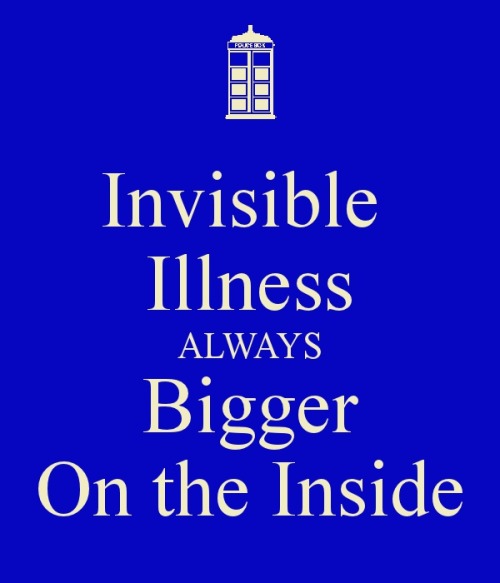Part of understanding ME/CFS is understanding the affect it has on the day-to-day lives of people with the illness. It's kind of hard to understand how much impact something like this can have on a person's life unless you've experienced it first hand, or are close with someone who has. I've been incredibly fortunate with my friends and their level of understanding, but even after five and a half years they are sometimes surprised by just how much of an impact this disease has.
School/College/Work
Often when people first begin to show symptoms they try to ignore it and carry on as normal. This never lasts long. For some, the only thing they can do is leave completely. Needless to say this can be devastating for your self-esteem and leave you scared for the future. It translates to loss of income, lack of qualifications, being 'left behind' by your peers and uncertainty about your future career.
Many people find themselves in a less drastic position though. Depending on their health, job and age they may have more flexibility in work or school. They may be able to take it easy or do half-days, some can even go full speed. Even this though can make life difficult. Working full time take a lot of energy for anyone, but for someone with a chronic illness it literally takes every ounce of energy you have. This can result in people being too tired to do anything but literally go home and sleep until the following morning when you get to go back to work. There is often no time for eating, physiotherapy, talking to people, watching TV or anything else. People functioning like this are sacrificing a quicker recovery time just to keep up with the able-bodied people around them.
Social
There's much doubt and discrimination against those with illnesses like ME/CFS. As it is a diagnosis of exclusion, it cannot be tested for or proven. I'll cover all of that though in a different post, what I'm talking about here is from the perspective of the individual. So forget everyone else, work on the assumption here that all your friends and family are super understanding and accommodating.
We've already established that if you're putting all your energy into work you will have no energy for anything else. What people don't seem to understand though is that if you are someone who doesn't have enough energy for work, you also don't have any energy for a social life. I'm lucky enough to live with one of my friends and my boyfriend, so although I only see my other friends about once a week (if that) I still get to be fairly social. Unfortunately though not everyone is so lucky. The word 'lonely' reaches a whole new meaning when you haven't laid eyes on anyone within twenty years of your age in over three months. You end up drifting away from your friends quite quickly and it's very hard for them to understand that although you haven't seen them in several weeks, you haven't seen anyone else since either.
Being so isolated changes you. It changes how you interact with people and how well you cope in social situations. It can cause severe social anxiety and feelings of being left behind, forgotten, out of the loop and even purposefully rejected.
Staying At Home
Step 1: Wake up. Fail. Try again. Fail. Rinse and repeat.
Step 2: Arrange for someone to bring you breakfast. Can't do that? Repeat Step 1 until you can muster the energy to get out of bed.
Step 3: Morning meds. Try to remember all the right ones at the right times.
Step 4: Attempt a shower. Can't manage it? Try to wash at the sink. Can't manage that either? Ok, you're going to be icky today.
Step 5: Nap/rest. You have exhausted yourself with all this breakfast and showering malarky.
Step 6: Need to pee? Right. Too sore to get up. Weigh pros and cons for about half an hour til you can't hold it any more. Go to the bathroom. Return to sofa/bed, painfully regretting the decision to ever drink anything ever.
Step 7: Recover from bathroom trip.
Step 8: Forgot about lunch. And daytime pills. If it's a bad day or the pills are too far away it's not worth it.
Step 9: If you can, sort out lunch and pills. Feel oddly refreshed.
Step 10: Cease to feel refreshed. Have a nap.
Step 11: Try to talk to someone online. Get halfway through a conversation.
Step 12: Too much exertion, need to rest.
Step 13: Repeat 'lunch crisis' with dinner and evening pills.
Step 14: Rest, try to wind down.
Step 15: Bedtime. Sleep. Fail. Try again. Fail. Rinse and repeat.
That is genuinely what a medium-bad day looks like. A good-medium day will involve slightly more conversation and maybe a blog post but that's about it.
Now, I could include all the things about what happens when you try big stuff, like starting a new job or moving, but the truth is that there isn't much point. Big events are more or less impossible for most ME/CFS sufferers, and the difficulties are pretty much the same as everyone else. The only difference is that you're adding these difficulties to everything listed above, an already severely restricted life.

"What are you studying? Nothing? Oh, where do you work then? Really? Then what is it that you do all day? Ha fair enough, must be nice taking a few years out.."
How are you supposed to answer this every time you meet someone new? How do you even mention something like ME/CFS if nobody understands what it is? How do you get them to see you as a person and not a helpless infant once they know about it?
"Ha yea, well I have ME. It just basically makes you sleepy a lot. It's not a big deal."
This is why it's important for people to know about the lives of people with chronic illness, so we don't have to justify our day-to-day lives or act like it's not a massive thing.
To finish on a lighter note, here's what a bunny would look like if it had ME/CFS:



No comments:
Post a Comment